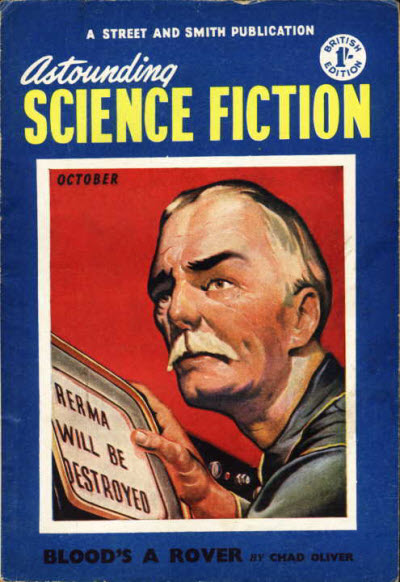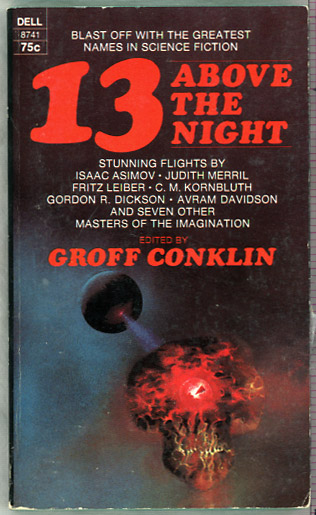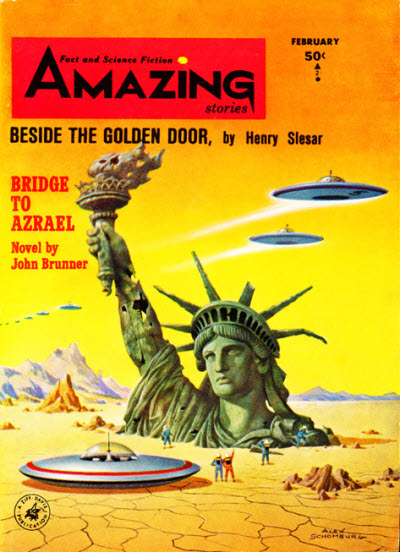I've written a couple of postings about finding this book (the above image isn't of my copy, though) with 15 other sf-fantasy books in a recycle bin yesterday, and of the peculiar odor that came with them.
http://www.sffchronicles.co.uk/forum/6197-book-hauls-470.html#post1717052
http://www.sffchronicles.co.uk/forum/6197-book-hauls-471.html#post1717078
I read "Prone" by Mack Reynolds, my first Conklin story for May. A cadet is accident-prone. Earth's war with Mars drags on. Neither side can quite tip the balance. A commander puts 2+2 together.
2/5
I thought about starting to rate my books themselves for their olfactory quality. Well, why not? Kindles and Nooks don't have that dimension.
So:
5/5: book genuinely has a pleasant scent to it [this will be awarded rarely]
4/5: the book is agreeable to smell because of some association evoked by its smell, e.g. maybe it reminds one of prowling the sf sections of used book stores years ago; the smell itself might not be all that appealing, but the associations are
3/5: neutral
2/5: the book smells unpleasant without the smell being a real issue, e.g. maybe it has a slight scent of cigarette smoke
1/5: the book truly has a horrid smell
I guess this copy would be 1.5/5.
I have a Coleridge book that would rate 2/5, his
Constitution of the Church and the State. It smells like patchouli, at least I think that's what it is, & I wish it didn't, but I have no doubt about keeping the book.










